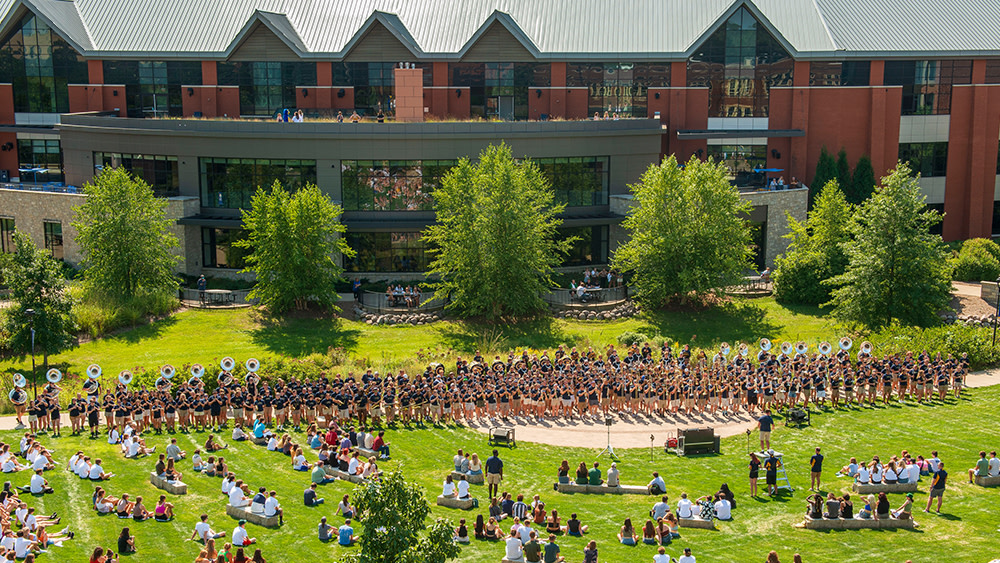Some colleges and universities have a multi campus setup, where courses are available on more than one campus in more than one location. In addition to the main campus — situated in an area traditionally associated with the school — there may also be a branch or satellite campus in another town, state, or even country. Let’s take a closer look at why international students may choose to study at satellite campuses and if there are any advantages or disadvantages to enrolling at one campus over the others.
What Is a Satellite Campus?
At the most basic level, a regional, branch, or satellite campus is a physical school at a different location than a learning institution’s traditional or main campus. Auburn University at Montgomery, for instance, is a branch campus located 45 miles away from the main campus in Auburn, Alabama. Heriot-Watt University, historically located in Edinburgh, Scotland, has two satellite locations in different countries: Heriot-Watt Dubai and Heriot-Watt Malaysia.
Each school is different and handles its campus structure individually. As a result, some satellite campus locations may have different classes, accreditations, faculty, and learning opportunities. In contrast, others share budgets, degree options, cost structures, and other resources across the network of locations.
Why Do Universities Have Satellite Campuses?
There are several reasons a university might open a branch campus in a different physical location than the main campus. A multi-campus setup allows universities to serve the different needs of their students. Multi-campus structures also enable students to live off campus or on campus, meaning more boarding options, price points, and flexibility. For instance, some universities designate specific campuses for commuter students who live in housing off campus or professionals who continue their education at night after work.
Branch campuses may also allow students to immerse themselves in a different culture — such as international outposts for study abroad students. Virtually every Shorelight school offers additional study-abroad opportunities. For example, Fairfield University, based in Connecticut, offers more than 50 programs in 100 different cities.
Other campuses may be part of a statewide network of schools, such as the University of California Berkeley, and/or are situated in locations selected for their unique learning opportunities. For instance, students at SUNY - Stony Brook University interested in oceanographic research might spend time studying at SUNY’s Southampton Marine Station campus.
How to Choose a Satellite Campus
Before you enroll, it’s essential to understand precisely how each location differs. Not every area of study is available at every main campus, and some classes — especially research classes that are geographically dependent — may only be available at that branch location. Make sure you speak with an advisor and understand each location’s offerings.
Many branch campuses allow students to focus on their studies and bond with other students who have similar career aspirations or living situations. Others allow students to immerse themselves in a different culture or lifestyle. The United Arab Emirates (and especially Dubai), for instance, is a popular satellite location for dozens of international universities, but many schools only offer limited access to areas of study.
Remember, too, that college isn’t all about studying. Satellite campuses may have social and cultural environments distinct from the main campus. Depending on the school, one campus may have more amenities or a more lively social scene. If you are applying to a university’s satellite campus, don’t expect the two to be culturally and socially the same just because they represent the same university.
For instance, if you are interested in the excitement of a large public research university with a great sports culture like Lousiana State University, you may not be happy at a branch location, which could have a smaller student body, fewer dining halls and study lounges, or not as many clubs or social opportunities. Or, if you are pursuing a health degree, you may find that LSU’s New Orleans-based campus, LSU Health, is more aligned with your goals.
Whichever option you choose, speak with an advisor and international studies representative before you decide on a main campus or satellite campus. The more you understand a university’s campus set up before you leave home, the better your chance of a rewarding international study experience.
